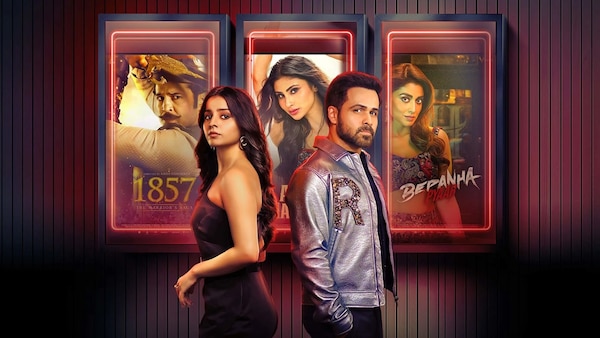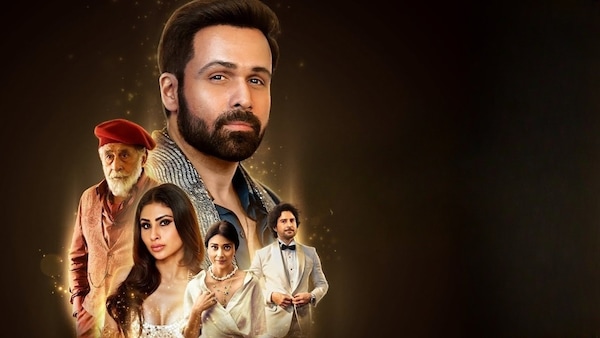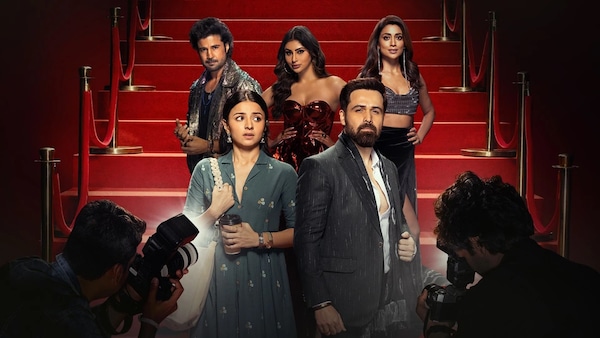Showtime: More A Blind Item Than Bollywood Exposé
Directed by Mihir Desai and Archit Kumar, Showtime is too trapped in mining sensationalism to make sense of the world it is occupied with

Last Updated: 04.36 PM, Mar 09, 2024
A FILM CRITIC, fired for doing her job honestly, suddenly finds herself helming one of the biggest film studios in India. An heir of the same studio finds himself ousted from the coveted position overnight. In a span of a couple of hours, an insider from the Hindi film industry and an outsider switch places. Showtime, the new show on Hotstar, has a premise that feels designed to counter the debate that has been raging in the Hindi film industry for a while: nepotism. The intent behind orchestrating this swap is obvious. The makers want to insist that every insider was an outsider once and every outsider has the potential (and the desire) to be an insider. And more crucially, underline that for all purposes of debate, these labels are facile.
Reactionary or not, it is a fun setting. Not least because Showtime, the eight-episode series of which the first four are available, has been produced by Karan Johar, the filmmaker and producer whose reputation has come to be stained by accusations of favouritism. After years of defying and defending it in interviews, he has greenlit a longform show to address it. Created by Sumit Roy (one of the writers of Rocky Aur Rani Kii Prem Kahaani) and written by Mithun Gangopadhyay, Lara Chandni and Roy, Showtime is a pulpy takedown of the mechanics of an industry that always has plenty of grist for the gossip mill. The problem is, the show veers too much towards extremes to have an impact. It is too flimsy to be seriously regarded and too consumed by mock self-seriousness to be enjoyable, coming across thus as a blind-item equivalent of a series which engages us by indulging in a guessing game.

It does not help that the nuts and bolts of the story seem familiar. A legacy production house called Victory, touted to have unimaginable control over actors, has two warring heads: the one who started it, Victor Khanna (Naseeruddin Shah); and his son, Raghu Khanna (Emraan Hashmi). Both producers differ in their approach. The father, known for snow-clad locales and heroines clad in chiffon saris, made films with a passion bordering on religiousness. Raghu, however, is more reliant on encashing profits. He has a more new-age sensibility that does nor align with Victor . The two characters give way to instant speculations. Yash Chopra and Aditya Chopra come to mind; so do Yash Johar and Karan Johar.
Ditto for the superstar, Armaan (Rajeev Khandelwal), who is portrayed as a moody, insecure performer, high-strung with insecurities. A better female lead, his wife, an actress on a sabbatical, getting more attention than him can set him off. He does farming and is known for his starry tantrums. He was a good actor once but his aspirations were drowned out in his ambition to be a star. Then there is Mahika Nandy (Mahima Makwana), the outsider who becomes an insider.
Directed by Mihir Desai and Archit Kumar, Showtime is too trapped in mining sensationalism to make sense of the world it is occupied with. It takes few pauses — but shines when it does. A subplot of domestic abuse is depicted and handled with deft subtlety. But more often than not, things are way too on the nose and impractical. Take for instance the ease with which Nandy fits into the role of a studio head. Either the makers have little idea of the complications such a thing entails, or feel too generous towards film critics (she got fired after doing her first film review). In any case what comes across is neither realistic nor convincing. On knowing that she has been given such responsibility, Mahika frets for one day. Her mother advises her over the phone not to lose her path amid all the glamour. Post-chat, she solves crises and hires an artsy director for a big commercial project, with all the confidence of a veteran. Every time someone voices a doubt, Mahika shoots off a monologue that leads to a drastic change of heart on the part of the doubter.

Even Raghu’s character is one-note. He is an injured son and an uncaring partner, but neither of these has any bearing or commentary on his craft. He becomes a stand-in for the contemporary producers who want to make money at the cost of art. His films have done well but somehow actors do not have much faith in him. It is a strange conundrum that brings up the modern versus traditional debate, and villainises him for the sake of conflict. Granted it is difficult to have an opinion on a show on the basis of a couple of episodes but it is not hard to gauge the intent. Showtime is created to showcase the ease with which outsiders can become insiders and how inconsequential the tag of nepotism can be. But the show is too taken by its own ingenuity to delve further and culminates with all the depth of a Reddit thread.

 Premium
Premium